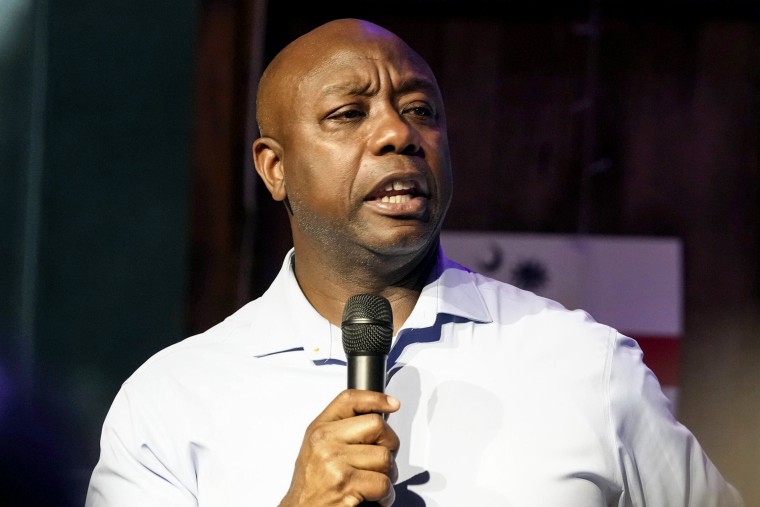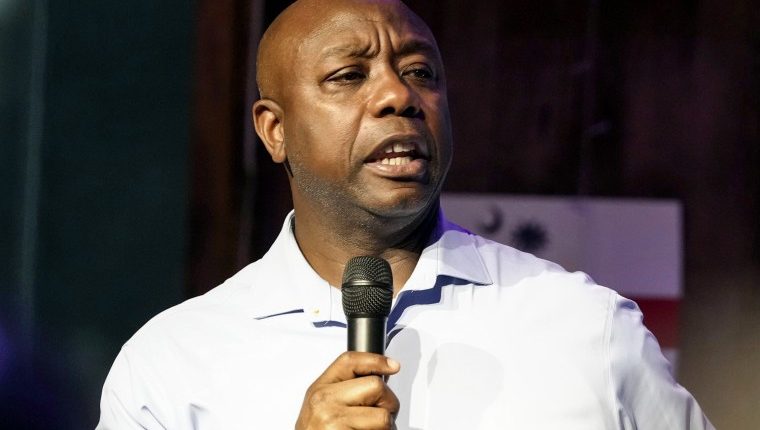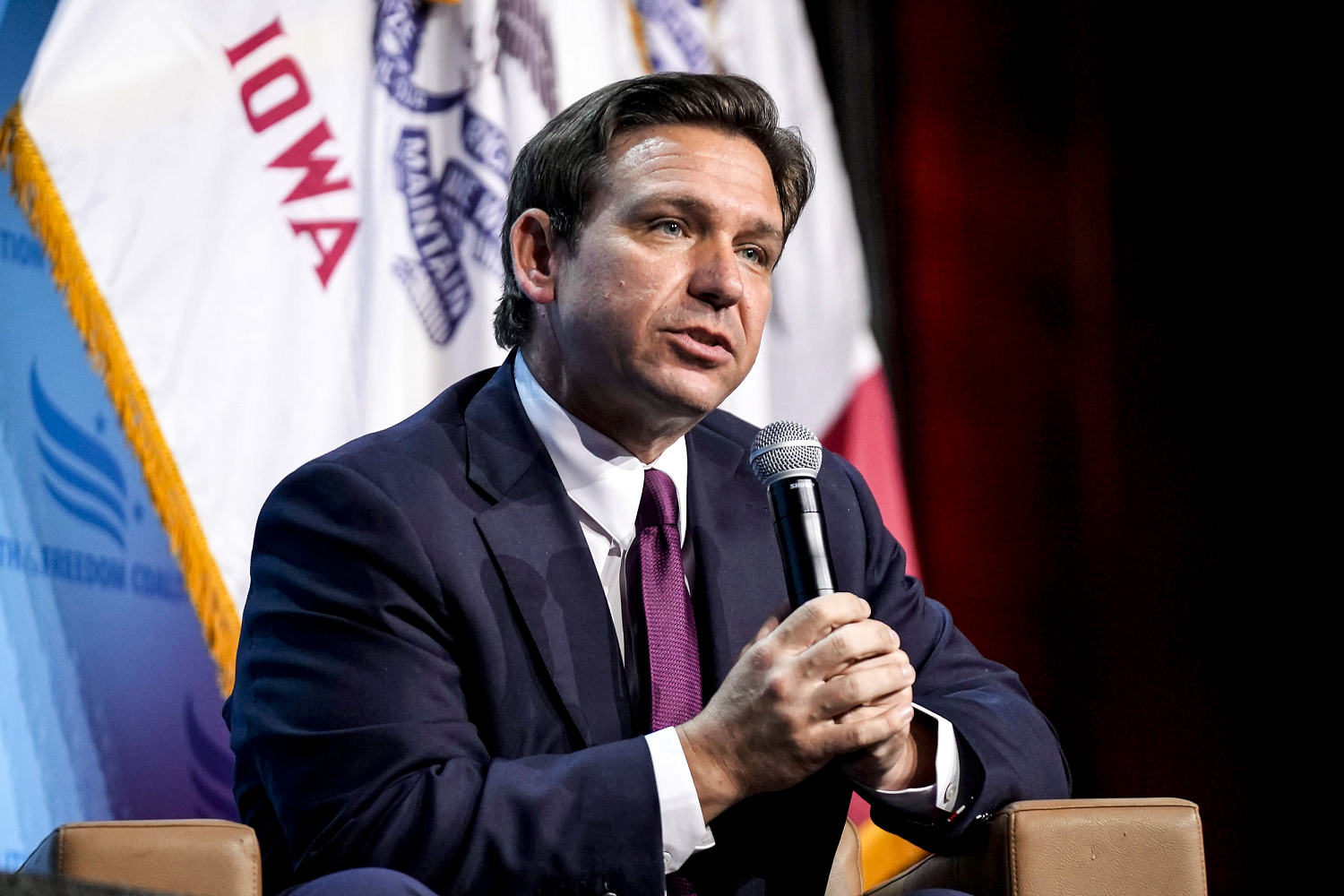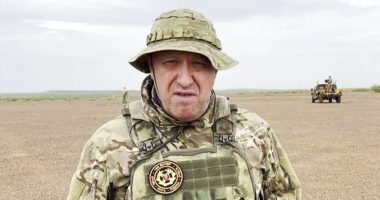Only a handful of candidates in the 2024 Republican presidential field currently hold elected office. And both Florida Gov. Ron DeSantis and South Carolina Sen. Tim Scott have leaned on the power they have in those offices following the deadly terrorist attack in Israel and the subsequent war with Hamas.
DeSantis’ administration chartered flights out of Israel for Florida residents trying to get out of the country, while Scott has used his Senate perch to co-sponsor new legislation.
Using elected office to amplify a campaign message is nothing new in presidential politics. But what is unusual this year is how few of the GOP’s current contenders have an office to wield — partly due to a number of current officials deciding not to leave or risk their positions to join a race against former President Donald Trump. That’s the background against which DeSantis and Scott have responded to events with governmental actions, many of which they’ve now incorporated into their campaigning.
DeSantis returned to Florida from the campaign trail just days after the Oct. 7 Hamas attacks to announce a slate of state sanctions against Iran. Unveiling the sanctions proposal in South Florida alongside state legislative and Jewish leaders, DeSantis reiterated the state’s commitment to not enter business agreements with Iranian entities and expanded Florida’s ban on state investments in Iranian businesses.
A special session of Florida’s Legislature is set to meet the week of the upcoming third GOP primary debate to take up the governor’s updated sanctions legislation.
But DeSantis’ most notable action has been his administration’s move to charter flights to evacuate Floridians from Israel, using the Florida Division of Emergency Management.
The first high-profile flight arrived in Florida on the evening of Oct. 15, landing in Tampa with 270 evacuees on board. Three days later, the DeSantis announced the arrival of a second flight in a post on X, the platform formerly known as Twitter, but it was not immediately clear how many Americans were on the flight.
DeSantis has put those evacuation flights front and center on the campaign trail as he expresses his support for Israel, often brandishing the flights as an attack on the Biden administration.
“Most of these people are just stranded in Israel in the middle of this conflict and the State Department wasn’t helping them, the embassy there in Israel wasn’t helping them. And so I said, you know what, there’s a void of leadership, I’ll do it,” DeSantis told a crowd to applause at a campaign stop in Murrells Inlet, South Carolina.
“The governor knows how to use the levers of executive authority to deliver results and has always stepped up to the plate when people are most in need,” DeSantis campaign press secretary Bryan Griffin said in a statement to NBC News.
The Biden administration has also coordinated evacuation flights out of Israel for stranded Americans. Secretary of State Antony Blinken first told NBC Nightly News’ Lester Holt in an interview in Israel on Oct. 12 that the State Department was planning charter flights for American citizens who sought to leave the country.
The following day, National Security Council spokesperson John Kirby told reporters that the first State Department charter had left Israel for Europe, with flights planned “as long as there is a demand from U.S. citizens for departure assistance.”
Some of the DeSantis administration operation’s details remain unclear. Officials at the Florida Division of Emergency Management and the Governor’s Office did not reply to a request seeking details on how many flights have landed, how many Americans have been evacuated as a part of the operation, and how many more flights they anticipate as the war rages in the Middle East. At that same campaign stop in Murrells Inlet on Oct. 20, DeSantis estimated his administration had brought home between 500 and 700 people.

Scott, meanwhile, has co-sponsored two new pieces of legislation in response to the war, both centered around topics that have emerged as Republican lines of attack against the Biden administration: Biden’s previous decision to unfreeze $6 billion in Iranian oil money this year as part of an exchange for American prisoners, and his hesitancy to outright condemn pro-Palestinian protests that have taken place in schools and major cities nationwide.
The “Revoke Iranian Funding Act,” the first of two bills introduced by Scott following the war, would have refrozen the $6 billion in Iranian assets and directed the Treasury to target “high-value Iranian assets” globally. Scott touted the legislation even as news emerged that the Biden administration and Qatari government agreed to deny Iran access to the funds in light of the attack.
Scott told attendees at a campaign event in Newton, Iowa, that his bill would go beyond simply freezing the $6 billion and “look at every account we can find where Iran has more than $5 million and also work to freeze as many of their assets as humanly possible.”
Scott’s second bill, “The Stop Anti Semitism on College Campuses Act,” would block Pell grants from going to colleges and universities “that peddle antisemitism or authorize, fund or facilitate events that promote violent antisemitism.”
He introduced the bill in response to pro-Palestinan protests in major cities and college campuses nationwide.
“We should not create an environment where you are actually able to advocate for murder, or worse, genocide, on college campuses where federal dollars are the primary investment,” Scott said at a campaign event in Maquoketa, Iowa.
Holding elected office and campaigning don’t always go hand in hand. Despite Scott’s staunch pro-Israel rhetoric, he recently missed a vote on the chamber’s bipartisan resolution affirming support for Israel and condemning Hamas, instead traveling to New York for media appearances and fundraising events.
Democrats seized on the missed vote.
“While the Senate voted unanimously to express support for our ally in the wake of the deadly terrorist attacks, Tim Scott was busy trying to save his floundering campaign at a high-dollar fundraising lunch with Wall Street executives. For all his talk about standing with Israel, Scott’s absence speaks louder than his words,” DNC spokesperson Sarafina Chitika said in a statement.
But this isn’t the only time that having the power of political office has proved useful in the campaign.
Scott often touts on the trail legislation he co-sponsored aimed at combating the country’s fentanyl crisis by sanctioning chemical suppliers in China and drug traffickers along the border. The bill was included in the 2024 National Defense Authorization Act.
And DeSantis, in May, just before officially announcing his presidential bid, sent 800 members of the Florida National Guard to the southern border along with hundreds of other Florida law enforcement officials to assist Texas officials, reinforcing what became his campaign message on immigration.
The following month, DeSantis announced in a post on X that he was sending Florida officials to help with the aftermath of a partial building collapse in Davenport, Iowa — the site of the first-in-the-nation caucuses on Jan. 15.
Source: | This article originally belongs to Nbcnews.com









